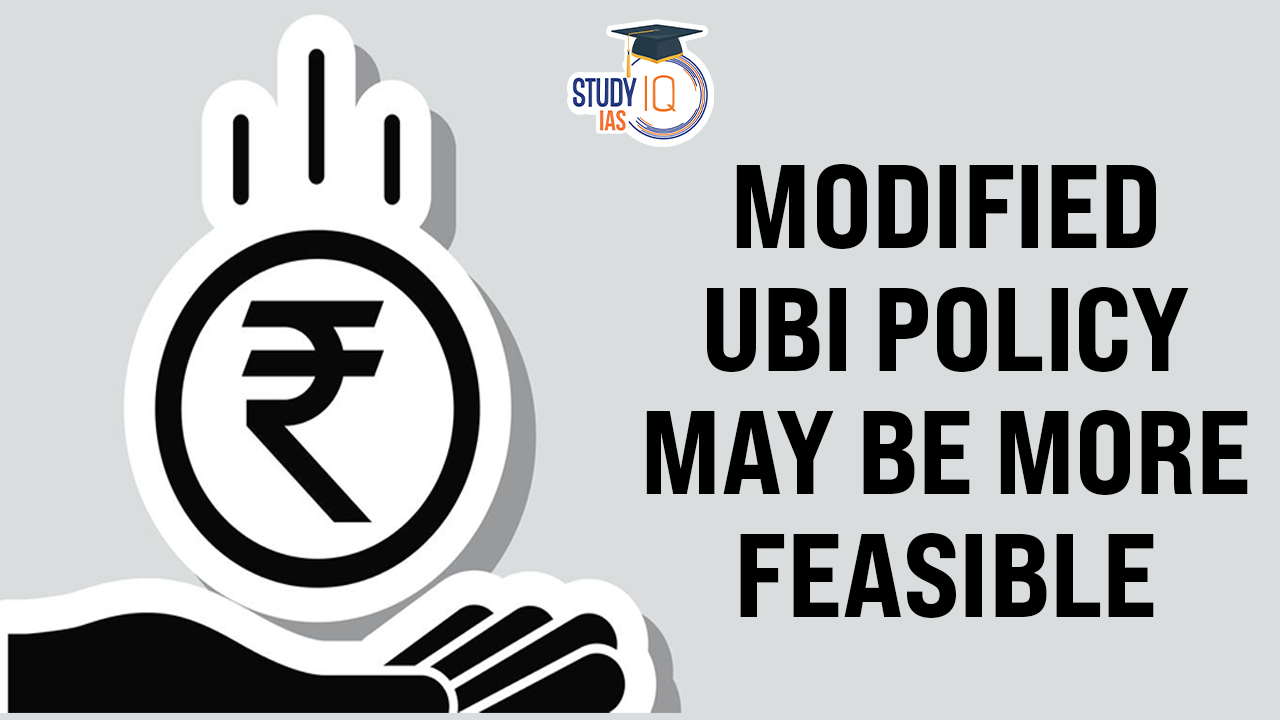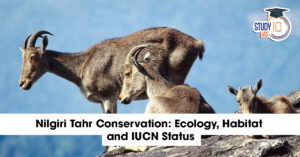Table of Contents
What is Meant by Universal Basic Income (UBI)?
- It is a form of guaranteed income where every citizen or resident of a country is provided with a fixed, unconditional amount of money on a regular basis, regardless of any other income they may earn.
- The 2016-17 Economic Survey recommended exploring UBI as a policy to replace inefficient welfare schemes.
- The report suggested the JAM (Jan-Dhan, Aadhaar, Mobile) infrastructure would enable Direct Benefit Transfers (DBTs) to beneficiary accounts.
Challenges or Criticism of UBI
- Financial Feasibility: UBI proposals often suggest transfers amounting to 5% to 11% of GDP, which is a significant burden on India’s fiscal resources.
- Implementing such large-scale schemes may require cutting other anti-poverty programs or drastically raising taxes to fund the initiative.
- Targeting vs. Universality: Critics argue that universal transfers would also go to the wealthy, who don’t need financial assistance.
- This raises concerns about the efficiency of using limited resources to provide benefits to those who are not vulnerable.
- Opportunity Costs: UBI may take away funds from more targeted programs that directly address issues like employment growth or poverty alleviation.
- Critics argue that investing in programs that create jobs or stimulate mass consumption might be a better use of resources in a developing country like India.
- Logistical and Implementation Challenges: Although India has developed JAM (Jan-Dhan, Aadhaar, Mobile) infrastructure, issues like inclusion and exclusion errors, Aadhaar verification problems, network failures, and bank rejections remain persistent challenges.
- These could hinder the smooth delivery of UBI benefits.
- Dependency and Work Disincentives: There is concern that a UBI might create a disincentive to work, particularly if people receive guaranteed income without any conditions, leading to reduced labour force participation over time.
State and Central Schemes: Precursor to UBI
- India has already implemented income transfer schemes, notably in agriculture:
- Rythu Bandhu Scheme (RBS): Launched in Telangana in 2018, provided ₹4,000 per acre to farmers.
- KALIA (Krushak Assistance for Livelihood and Income Augmentation): Odisha’s initiative for farmers.
- Pradhan Mantri Kisan Samman Nidhi Yojana (PM-KISAN): Launched in 2018-19, initially provided ₹6,000 per year to small landholding farmers and expanded to cover all farmers. The scheme aimed to reach 10 crore households by 2020-21, costing ₹75,000 crore (roughly 4% of GDP).
Modified UBI Proposals
- Limited Universal Transfers: A proposal developed by the author and economist Karthik Muralidharan suggests a modest universal income transfer of about ₹144 per month per person or ₹500 per household.
- This is pegged at 1% of GDP per capita, much more feasible than full UBI proposals requiring 3.5%-11% of GDP.
- Expand Existing Schemes: The PM-KISAN scheme provides an example of a targeted scheme that could be modified.
- By doubling its budget and making it universal, it could cover not only farmers but also landless labourers who are often poorer, thereby increasing its reach.
- Complementing Existing Programs: Instead of replacing all social welfare programs, the modified UBI can supplement existing programs like MGNREGS.
- Example: MGNREGS provides 100 days of employment, but a modified UBI could extend coverage to groups like the elderly and disabled, who are unable to work and might not benefit from employment programs.
- Cost Control through Modesty: By keeping the transfer amount modest (₹144 per person), the modified UBI ensures that the program remains financially sustainable while still providing a meaningful safety net.
- The relatively small transfer amount is significant in relation to the Tendulkar poverty line (₹1,500 per month in rural areas, ₹1,850 in urban areas).
- Reduced Administrative Costs: The universality of the scheme helps reduce targeting costs, bureaucratic delays, and errors associated with targeted programs.
- It also reduces the risk of corruption and leakages by minimising the need for intermediaries in the delivery system.
- Integration of Income and In-Kind Transfers: A modified UBI can be integrated with in-kind transfers like the Public Distribution System (PDS), ensuring a holistic safety net.
- The COVID-19 pandemic underscored the importance of both income transfers and food access, showing that they are complementary.


 Graphic Processing Units (GPUs) – Work...
Graphic Processing Units (GPUs) – Work...
 Gold Imports and the Indian Economy – ...
Gold Imports and the Indian Economy – ...
 Nilgiri Tahr Conservation: Ecology, Habi...
Nilgiri Tahr Conservation: Ecology, Habi...




















